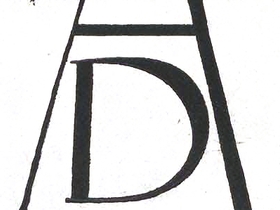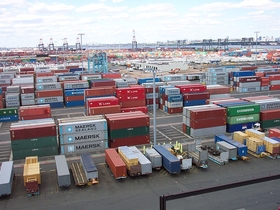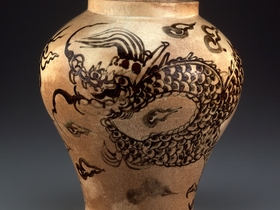On July 14, 2020 the Court of International Trade (CIT) issued a decision in Transpacific Steel LLC v. United States, (Transpacific) holding that Presidential Proclamation No. 9772, which increased tariffs on steel imported from the Republic of Turkey (Turkey) under Section 232 of the Trade Expansion Act of 1962, violated mandated statutory procedures as well as the Fifth Amendment’s Equal Protection guarantees.
As background, President Trump issued Proclamation 9772 on August 10, 2018 under the authority of Section 232 of the Trade Expansion Act of 1962. Proclamation 9772 imposed a 50 percent ad valorem tariff on steel products imported from Turkey in addition to the 25 percent ad valorem tariffs on steel products previously imposed by President Trump in March 2018 under Presidential Proclamation 9705, which was issued half-a-year prior. The Plaintiffs in the case consist of several producers and importers of Turkish steel that are requesting a refund of the additional tariffs they have paid pursuant to Proclamation 9772, ultimately arguing the Proclamation is unlawful. Following the court’s denial of the government’s motion to dismiss, the Plaintiffs submitted a motion for judgment on the agency record. The decision released today is the Court’s ruling on that motion. The case was heard by a three-judge panel consisting of Judges Restani, Kelly and Katzmann, with Senior Judge Restani authoring the opinion.
Plaintiffs in the case challenged Proclamation 9772 on several grounds. First, Plaintiffs argued that the issuance of Proclamation 9772 by President Trump violated certain procedural requirements of Section 232. In deciding the Plaintiff’s first argument, the Court agreed with Plaintiffs that the current statutory scheme of Section 232 restricts the time under which the President can act to adjust imports under the statute. Further, the Court dismissed the government’s contention that Section 232 allows for the President to modify any Proclamations issued thereunder outside the explicit timelines of the statute.
Second, Plaintiffs contended that the Proclamation was rendered ultra vires (an impermissible overreach of authority) by its lack of a nexus to Section 232’s national security objective. At the root of Plaintiff’s ultra vires argument is the idea that Proclamation 9772 was not motivated by legitimate national security concerns, but rather was issued under an impermissible foreign diplomatic agenda. The Court declined to hear evidence offered by Plaintiffs on the President’s motivation behind Proclamation 9772, explaining that such an inquiry was not necessary to the disposition of the matter at hand. Rather, the Court focused on the procedural violations that occurred in the President’s issuance of the additional tariffs on imports of steel from Turkey. The Court detailed the President’s violations, explaining that the statute required the President to act based on an official report and with recommendation by the Secretary of Commerce. However, the Court found that in issuing Proclamation 9772, the President acted without a proper report or recommendation. The Steel Report and recommendation from the Secretary that legitimized the March 2018 Proclamation on all steel imports was not a valid basis for the President’s subsequent Proclamation imposing additional tariffs on imports of steel from Turkey, the Court ruled. Thus, the Proclamation was ultra vires on the grounds that the President overstepped the statutory procedures of Section 232 when issuing it.
Third, the Plaintiffs brought a claim under the Fifth Amendment Equal Protection clause, asserting that the government lacked any rational justification for the discrimination between similarly situated importers that resulted from Proclamation 9772. When considering equal protection claims where neither a fundamental right nor a suspect classification is at issue, courts apply what is referred to as the “rational basis test.” In the Transpacific case, the rational basis test asked whether the issuance of Proclamation 9772 – additional duties on steel imports from Turkey – was rationally related to the government’s purpose of national security concerns. The question the Court entertained was not whether national security is a legitimate purpose in and of itself, but whether the additional tariffs on imported steel products from Turkey was legitimately grounded in the government’s national security concerns. The Court found that there was no persuasive evidence to support that Proclamation 9772 was a rational means of addressing the government’s national security concerns. In so deciding, the Court noted that Section 232 does not disallow the President from focusing on particular countries of origin when taking action to address national security concerns. However, the decision to treat importers of Turkish steel products differently from importers of steel products from the other countries listed in the Steel Report must be justifiable. Persuasive to the Court’s finding that the government’s decision here was arbitrary and irrational was its under- inclusivity; the decision to target Turkish imports of steel, explained the Court, is under-inclusive because Turkey is ranked only as the sixth largest exporter of steel products to the US. Ultimately, the Court found there was no permissible justification offered by the government for additional tariffs on Turkish steel for the purpose of national security and thus Proclamation 9722 is a denial of Plaintiffs equal protection of the law.
The Plaintiff’s fourth and final claim was that Proclamation 9772 violated the Constitution’s Fifth Amendment guarantee of Due Process. The Plaintiffs due process claim was unsuccessful as the Court found that the Plaintiffs failed to “fully articulate” a property interest that is protected by the Fifth Amendment due process guarantees. The Court made a point to note that it was not foreclosing the possibility that a constitutionally protected property interest existed here, bur rather that it was declining to identify one in the case at bar. In any event, explained the Court, whatever process is owed to Plaintiffs under the Constitution, the Section 232 statute’s process satisfies that constitutional requirement; having found the Section 232 statute’s process violated then, the Court found it unnecessary to entertain the constitutionality question.
The take-away from the Transpacific case, at this juncture, is an affirmation of Section 232’s grant of “great, but not unfettered, discretion” (emphasis added). While the Court declined to engage intriguing, substantive questions as to the Trump Administration’s use of Section 232 measures, the Court’s decision in Transpacific heralds an adherence to the statutory safeguards of Section 232 as well as to the limitations imposed by the constitution. We anticipate the government will file an appeal at the Court of Appeals for the Federal Circuit contesting the CIT’s findings.




